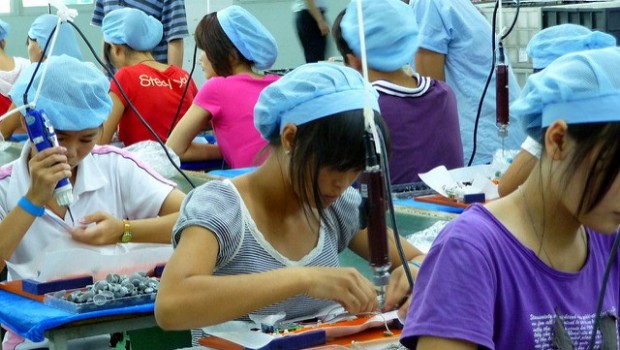China's economic recovery falters as Covid cases rise

China’s economic recovery continued to falter in August, official data showed on Wednesday, as rising Covid rates and fresh lockdowns weighed heavily.
Retail sales rose by just 2.5% year-on-year, according to the National Bureau of Statistics. That was well below forecasts for a rise of around 7% and the weakest improvement in 12 months.
Industrial production also missed forecasts, rising by 5.3% in August, down on July’s growth of 6.4% and the poorest rate of growth since July 2020. Most analysts had been expecting output to rise by around 5.8%.
China’s economy – the world’s largest after the US – initially recovered swiftly from the worst of the pandemic in 2020. But in the last few months it has stalled, hit by increased Covid rates, localised lockdowns, supply chain issues and the worldwide shortage of semiconductors.
Beijing has also sought to curb property investment. Separate data released on Wednesday showed property investment rose by 0.3% in August, the slowest pace in 18 months, while new home prices have fallen to an eight-month low.
Stocks across the region fell on the back of the soft data. Richard Hunter, head of markets at Interactive Investor, said: “[The] further weakening Chinese economic data depressed sentiment. Localised lockdowns are crimping growth, while higher raw material prices and lower industrial output are providing headwinds which the region is currently battling.”
Mitul Kotecha, chief EM Asia and Europe strategist at TD Securities, said: “The data highlights that China’s zero tolerance stance towards Covid comes with economic costs, and in particular a sharp increase in consumer caution as mobility was restricted across several provinces. An increase in Covid cases in south east China in Fujian over recent days suggests that such mobility restrictions will continue, likely impacting Golden Wek travel and spending.
“At the same time, the intensification of regulatory efforts and environmental policies are clearly impacting manufacturing during at a time when supply constraints are also worsening.”
He concluded: “China’s data will also likely fuel further concerns about a slowing in global growth just as activity in other countries continues to show that we are past peak growth.”
Freya Beamish, chief Asia economist at Pantheon Macroeconomics, said: “Consensus [for retail sales] had looked on the high side, but these figures are weaker than we expected.
“We remain worried about these figures. There should be a rebound in September. But household savings rates already have normalised, suggesting any further speedy growth in consumption would need them to start running down pandemic wealth, which seems unlikely in the currently environment, although wage growth should lend a hand for now.”